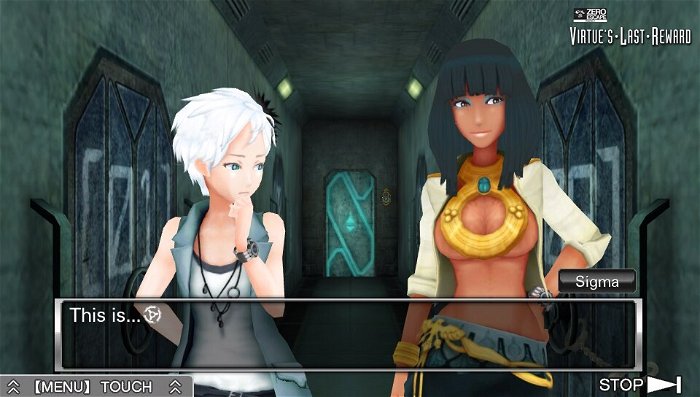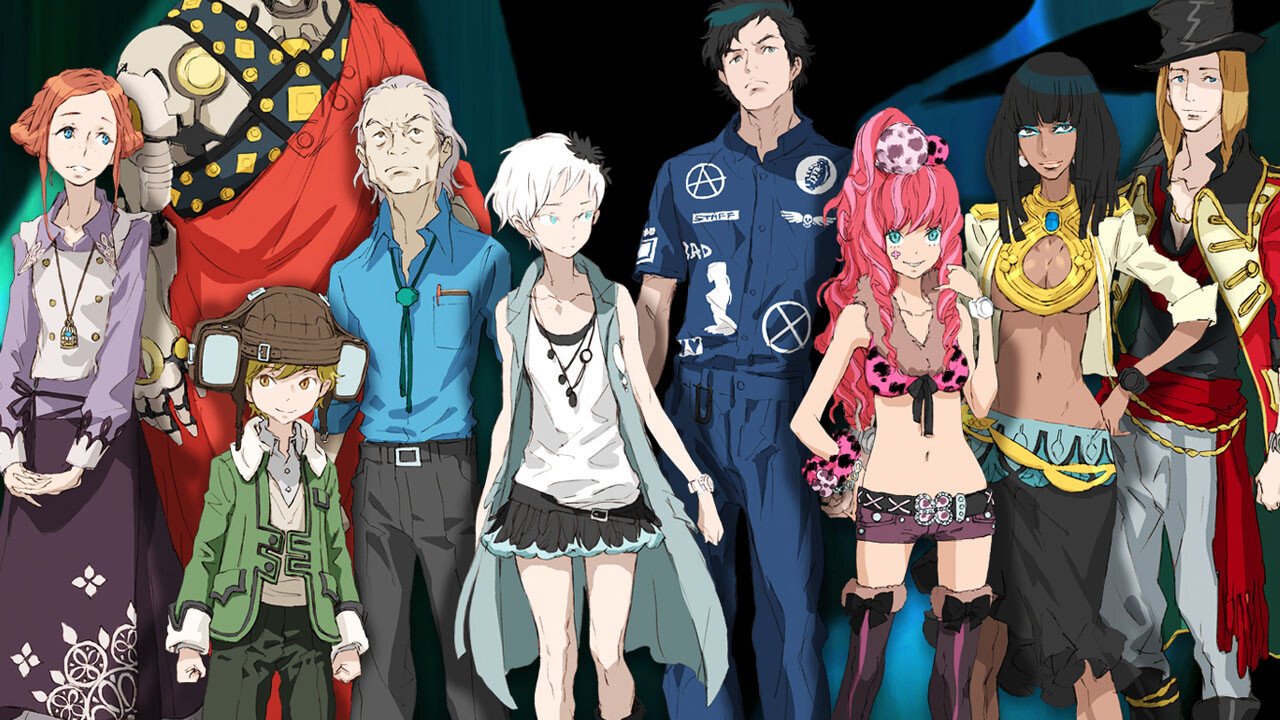Zero Escape: Virtue’s Last Reward is a frustrating game. It’s frustrating because, even as I failed to become invested in its mystery-themed storyline, it made me understand the appeal of an underserved genre. Virtue’s Last Reward is a visual novel, a type of game that has never quite penetrated the mainstream for obvious reasons—a lot of reading and very little action. It’s also one of a very few experiences of its type currently available in English-speaking regions, making the fact that I just couldn’t enjoy it as much as I wanted to a little bit aggravating.
Virtue’s Last Reward is the sequel to 2010’s 999: Nine Hours, Nine Persons, Nine Doors, a Nintendo DS release that was immediately fascinating due to its Saw-inspired premise and, let’s face it, one of the most bizarre names for a game to date. I played through a good portion of 999, reading up on how its multiple endings panned out after completing a single run through of the story on my own. It wasn’t a perfect game, but it did make me consider the visual novel as a genre that I could get interested in. Playing about ten hours of Virtue’s Last Reward cemented this, its polished manner of storytelling creating a compelling argument for interactive reading.

Unfortunately, I didn’t like the actual writing or puzzle sections that much. Considering that the two modes of play offered up by Virtue’s Last Reward are puzzle-solving and text-based exposition, failing to enjoy these elements meant that the game really wasn’t for me. Its overreliance on math puzzles wore thin after a time and its often clunky dialogue and prose is accompanied by character designs that I found pretty unappealing. None of this is to say that the game itself is a bad one. Virtue’s Last Reward‘s writers are great at propelling their mystery along and the number-based puzzles tie into the story appropriately. Just the same, it’s possible for someone not to like a game that another player may love. Just like reading a traditional novel, enjoyment can boil down to personal matters of taste. The real issue, then, is how to find an alternative experience from within the same genre.
Usually, if someone plays a game with mechanics they like, but other elements (visual style, plot, etc.) that they’re put off by it’s easy to look for something similar. You may not like Dragon Age, but love The Witcher; hate Gears of War while being really into Uncharted. Most of our videogame genres are expansive enough to include a title that suits any kind of player. This doesn’t seem to be the case for the visual novel.
Device 6, a game by Year Walk developer Simogo, is the closest I’ve come to finding something that scratches the itch that Virtue’s Last Reward gave me. This is mostly a matter of aesthetics. Instead of an anime-inspired character design and a murder mystery plot that doesn’t speak to my own tastes, Device 6 provides a surrealist take on the world of espionage. Because I find spies and magical realist storytelling more interesting than mysteries and Japanese cartoons, Simogo’s take on the visual novel offers a more palatable take on an interesting genre. It’s too bad, then, that so few developers create games in this genre. While text-based Twine games are great, there is a difference between an experience offered solely through words and ones that mix puzzles with an audiovisual story presentation. I’d welcome a rise in the visual novel, one where a greater variety of Japanese-developed titles are translated to English and Western creators more readily work at interpreting the genre from their viewpoint. If nothing else, visual novels are incredibly unique—part game, part book—and offer a welcome change of pace from the style of videogames that are usually released.




